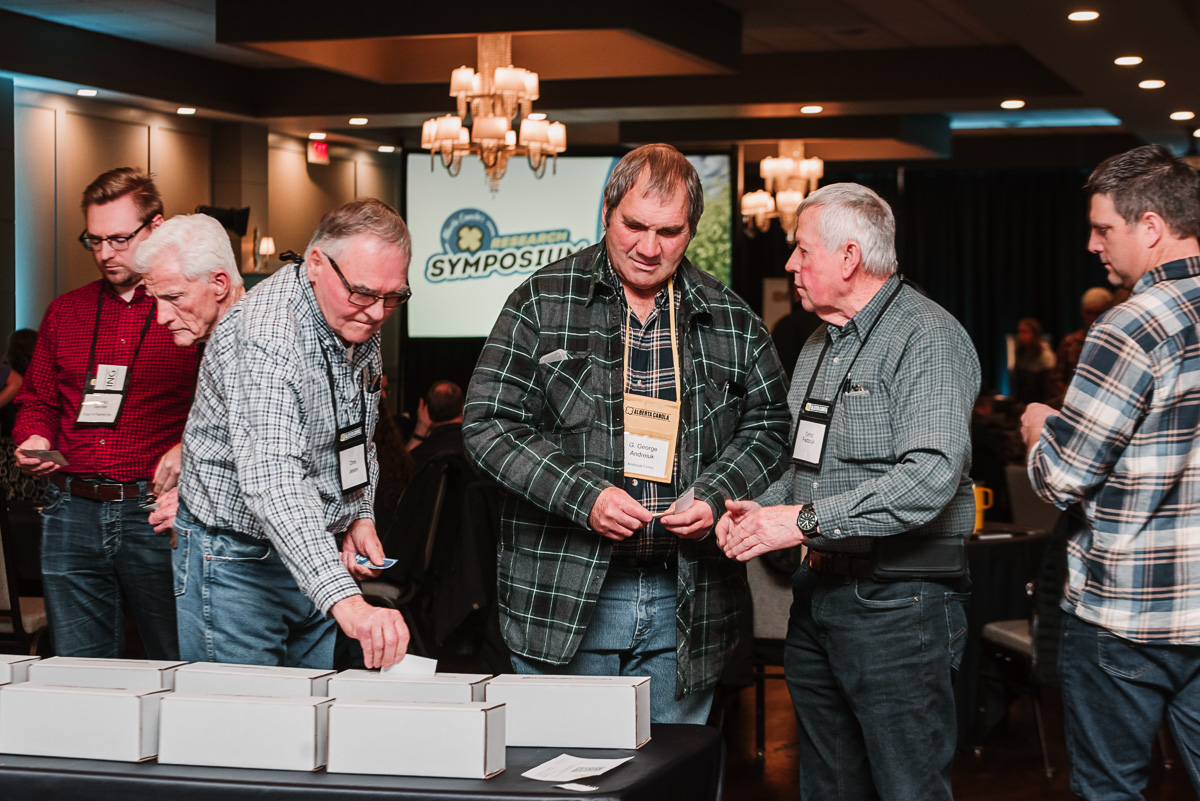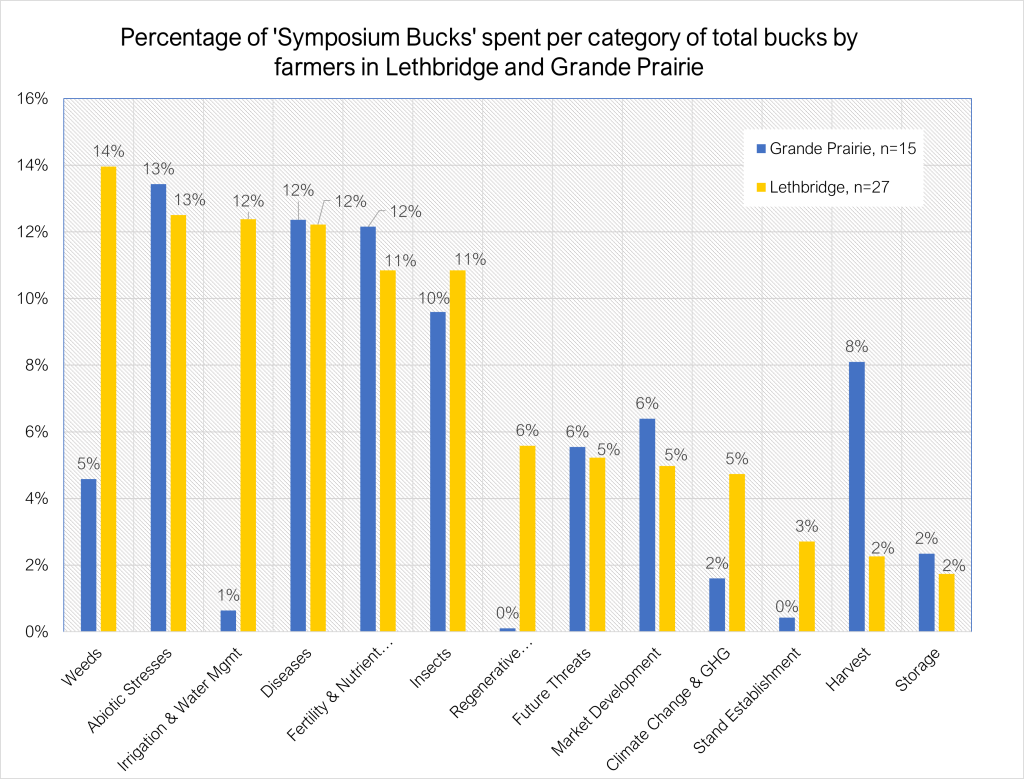
Harvesting Insights

Highlights from Alberta Canola’s 2nd Annual Research Symposium
Back to: News & Updates
Alberta Canola hosted its second annual Research Symposium at the Alberta Canola Conference in Grande Prairie on January 25th, 2024. A range of farmers and industry members participated in this half-day event focused on the research needs and priorities for Peace Region canola farmers.
The Research Symposium is an opportunity for Alberta Canola to engage with growers on what their production challenges are. Providing a platform for growers to connect with researchers, and offering a chance for growers to share their present and future research opportunities and threats directly to those who can research solutions.
The morning started with a 45-minute presentation, Canola Research in Motion, with the Canola Council of Canada agronomists Clint Jurke and Jason Casselman, providing an overview of past canola research and best management practices over the years. This included discussion on how major issues in canola have looked in the past, where they are today, and what they might look like in the future.
Following Clint and Jason was our Research Roundup, where we heard four 15-minute research updates provided by:
- Dr. Shelley Hoover – University of Lethbridge: Insect Pollinators
- Jennifer Otani – Agriculture & Agri-Food Canada Beaverlodge: Insect Management
- Dr. Stephen Strelkov – University of Alberta: Diseases (clubroot)
- Dr. Kelly Turkington – Agriculture & Agri-Food Canada Lacombe: Diseases
Following these updates, Canola Council of Canada’s Communications Manager, Jay Whetter, hosted an interactive panel to bring forward the questions and challenges of the canola industry in the Peace Region, and merge them with scientific considerations, ideas, and solutions.
The research symposium ended with an activity to help farmers and industry members cast their vote on what research topics are of importance to them.
“An important aspect of the Research Symposium is recognizing that there are unlimited challenges but not unlimited funding”, says Alan Hampton, Alberta Canola director and Research Committee Chair.
Alberta Canola has a $1,000,000 budget to commit towards new research annually, a number that only goes so far with so many different production challenges needing research. Participants were each given $5,000 in ‘Symposium Bucks’ to spend on their top research priorities and needs. This exercise not only allowed participants to voice their research priorities, but also experience the challenges of splitting finite funding resources between a myriad of important research areas. Farmers and industry participants were given different labelled bucks to identify the needs of each grouping separately.
Unveiling Canola Farmers’ Research Priorities for the Peace Region
The results from the Grande Prairie symposium indicated the Peace River region farmer’s top three research priorities as abiotic stresses, diseases, and fertility & nutrient management. These results are essential for our Research Committee, as the committee considers the needs of growers when selecting new research projects to fund each year.

Last year’s research symposium took place in Lethbridge and the highest voted priorities of Lethbridge and Grande Prairie differed. Lethbridge farmers voted that their highest research priorities were in weeds, abiotic stresses, and irrigation & water management. The differences between research priorities from the two regions highlight the importance of this activity. Farmer’s needs and priorities are not uniform across Alberta, so we need to cater to a range of priorities for all the different regions. Seeing that abiotic stresses were among the top three priorities between both Lethbridge and Grande Prairie signals to us that this is likely a topic of importance across Alberta.
The Research Symposium will continue to be part of the annual Alberta Canola Conference. Learning the production challenges and needs of farmers and industry in different geographical regions of Alberta helps to inform Alberta Canola’s research priorities and strengthen our ability to collect more focused research proposals from scientists. Stay tuned for a Research Symposium in your area!
By Kathryn Knodel
Research Coordinator
